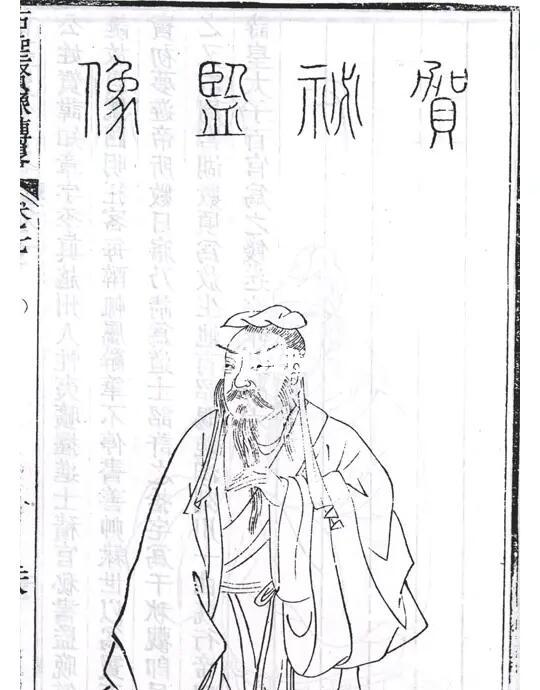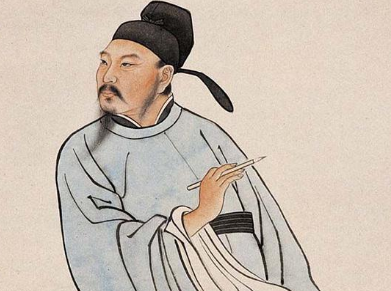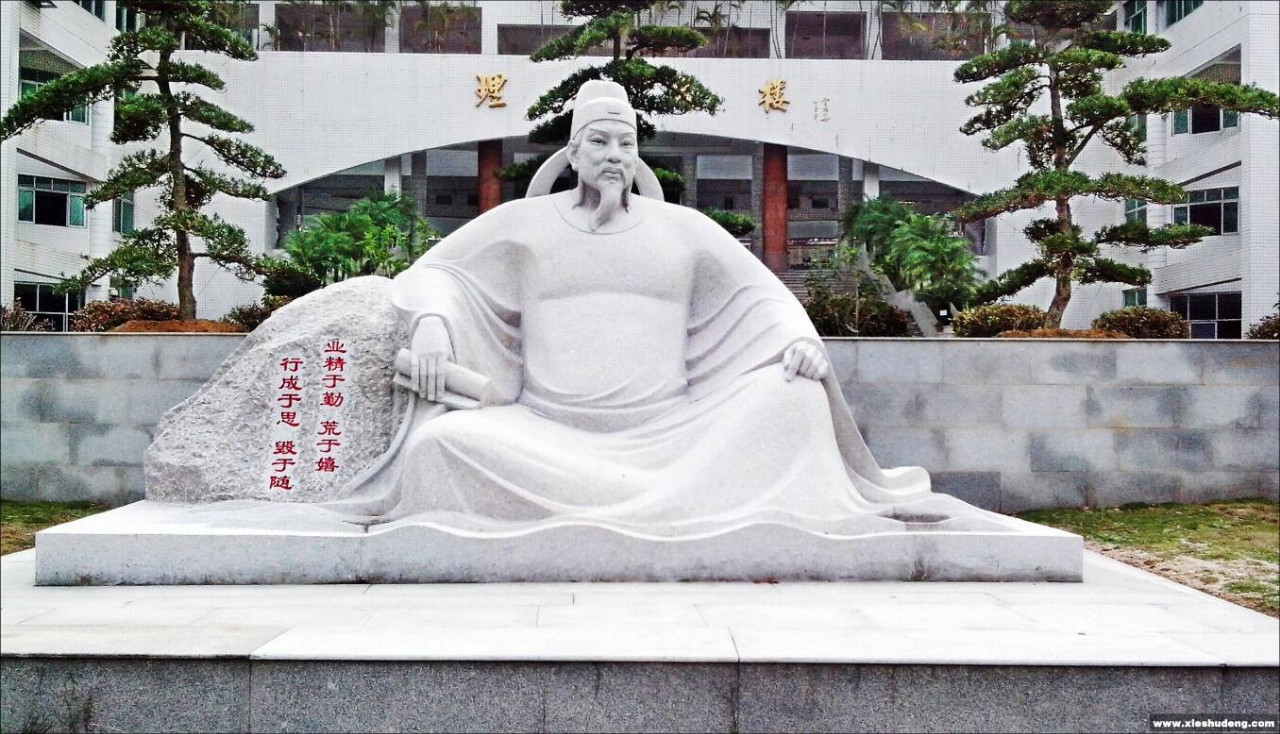Luo Binwang, also known as Guan Gong, was born in Yiwu, Wuzhou. He was a poet of the Tang Dynasty and was known as one of the “Four Great Masters of the Early Tang Dynasty” along with Wang Bo, Lu Zhaolin, and Yang Jiong. The above questions will be revealed one by one by the editor of the History Encyclopedia in the following text.

As the only legitimate female emperor in history, Empress Wu Zetian’s path to the throne was full of difficulties. Not to mention the various military uprisings carried out by the descendants of Li Tang, even the ordinary people in society were discussing it. Wu Zetian spent a lot of effort to deal with these dissenters, and finally succeeded in ascending to the throne as she wished. In the first year of Tian Shou (690), Wu Zetian declared herself emperor, but faced various threats after proclaiming herself emperor. There were many people who quietly planned for restoration behind the scenes, and there were even those who directly wrote articles in capital letters and cursed Wu Zetian in front of her. Luo Binwang is one of the outstanding among them. An impassioned article titled ‘Fighting against Wu Zhen for Xu Jingye’ was written, condemning Wu Zetian and shocking the world. It was directly passed down to Wu Zetian. Subsequently, he also firmly adhered to his beliefs and joined forces with Xu Jingye to rebel against martial arts. What was the final outcome of such a prickly child, which is not recorded in historical books? Was he hated by Wu Zetian and subsequently captured and killed?
Luo Binwang, also known as Guan You, was an outstanding poet and writer of the Tang Dynasty. He comes from a humble background, just a student from an ordinary humble family. His name and courtesy name are derived from the Guangua in the Book of Changes: “Observing the light of the country, using guests to the king.” This means that observing the achievements of the country is beneficial for becoming a guest of the king. It can be seen that this name contains his initial aspiration to enter the officialdom, from self-cultivation to governing the country and pacifying the world.
He, along with Wang Bo, Yang Jiong, and Lu Zhaolin, were collectively known as the Four Heroes of the Early Tang Dynasty. Lu Zhaolin’s evaluation was that he enjoyed being the queen but was ashamed of being in front of Luo, indicating that his fame was already very high at that time. The song ‘Ode to the Goose’ that we have memorized since childhood was written by him at the age of seven, which shows that he is indeed a young genius. Even a young genius couldn’t improve his life. His father was just a small county magistrate, and after his father’s death, he struggled to make ends meet. He first lived in Boshan and later moved to Xiaqiu County in Yanzhou. His early years were filled with poverty and destitution.

During the reign of Emperor Gaozong, King Luo Bin served in the imperial court and soon after, he changed the world and became the ruler of the court. In the third year of the Yifeng reign (678), he served as a censor and wrote several letters mocking Empress Wu, but was eventually convicted and imprisoned. It was during this period of imprisonment that he wrote the famous poem “Ode to Cicadas in Prison”, which expresses his passion for Li Tang and his grief and anger, saying, “It’s difficult to enter when the dew is heavy, and it’s easy to sink when the wind is strong. No one believes in nobility, who is willing to express his remaining feelings. Because he was not a high-ranking official and the situation did not escalate to Empress Wu, he was released just one year later. Although he was later transferred, according to the “Old Book of Tang,” he completely abandoned his official position and traveled to Guangling, where he wrote a poem to express his aspirations: “The precious sword is cherished in Chu, and the golden vertebrae are promised to report to Han
In the first year of the Sisheng era (684), Wu Zetian deposed Emperor Zhongzong Li Xian and declared himself independent. In September of the same year, Xu Jingye claimed to be the Grand General of Kuangfu Prefecture and rebelled against Wu in Yangzhou. King Luo Bin also participated in this rebellion and issued a decree to Xu Jingye.
Xu Jingye, originally named Li Jingye, was the grandson of Li Ji, a famous general who founded the Tang Dynasty. He was skilled in horseback riding and archery from a young age, and had exceptional intelligence. Later, due to his father’s premature death, he became a British duke at an early age. He is a staunch supporter of the Li Tang royal family, so he cannot sit idly by and watch Wu Zetian overthrow and seize the Li Tang kingdom several times. He sent troops under the name of “Qin Wang saves the country” and “Kuang Fu Lu Ling Wang Li Xian restores his throne”, and it was at this time that King Luo Bin wrote the shocking and timeless “Conquering the Martial Arts for Xu Jingye”.
This article is written passionately and deeply shocking. Wu Zetian was greatly shocked when she read the two sentences “A piece of land is not yet dry, how can a six foot orphan rely on it?” She quickly asked who wrote them. The minister said it was written by King Luo Binwang, and Wu Zetian sighed, “With such talent, it is the fault of the prime minister to make it fall into disrepair!” His articles can make enemies admire him from the bottom of their hearts, which shows his talent.
This mutiny did not succeed in overthrowing the rule of Empress Wu Zetian, and was completely defeated by November of the same year. The main general Xu Jingye was also killed, and the whereabouts of King Luo Bin are unknown. There are also different opinions about his fate in later generations.
The first claim is that he died after a military defeat. Both the “Zizhi Tongjian” and the “Old Book of Tang” record that he and Xu Jingye were killed at the same time after the defeat, while the “Chaoye Jiezai” records that he died by throwing himself into the river.
The second theory is that he did not die after the defeat, but fled. The New Book of Tang records that ‘fleeing without knowing where to go’. After ascending the throne again, Li Xian was deeply grateful for the achievements of King Luo Bin, so he specially sent people to collect the whereabouts of King Luo Bin and compile them into a book. The dispatched personnel visited everywhere, found the soldiers who participated in the uprising at that time, and asked about the old friends of King Luo Bin. As they delved deeper into the investigation, the results became more inclined towards the idea of escape. Therefore, such a record was recorded in the “New Book of Tang”.
The third statement is even more interesting, that he became a monk. The famous poet Song Zhiwen was exiled to visit Lingyin Temple in Hangzhou. That night, the bright moon hung high, and he racked his brains to write two lines of poetry
The Eagle Ridge is desolate and the Dragon Palace is locked in loneliness, “but I couldn’t think of the next sentence, so I tossed and turned. At this moment, an old monk in the temple asked him what was wrong, and he expressed his distress. After listening for a few sentences, the old monk pondered for a while before speaking; Why not use the two lines’ Lou Guan Cang Hai Ri, Door to Zhejiang Chao ‘? “Song Zhiwen didn’t expect the old monk to recite such two wonderful poems. After returning home and carefully examining them, he found that these two lines can be said to be the best in the entire poem.
The next day, when Song Zhiwen went to visit the old monk again with great joy, he could no longer find anyone. Someone in the temple told him that the old monk was actually the former Luo Binwang.
The last version is derived from the genealogy of King Luo Bin, whose descendants believed that he fled and arrived in Nantong, Jiangsu, where he remained until his death at the age of seventy. Many historians have indeed verified and expressed agreement with this statement.
The whereabouts of King Luo Bin have become a mystery, and everyone has their own basis, but they are all vague and elusive. Even the existing tombs of King Luobin in Nantong and Yiwu, as verified by scholars, are believed to be only burial mounds. But no matter where he is, the momentum contained in his works remains undiminished. Through his passionate speeches, we can vaguely glimpse the talented person who had a passion for doing things that ordinary people dare not do.



